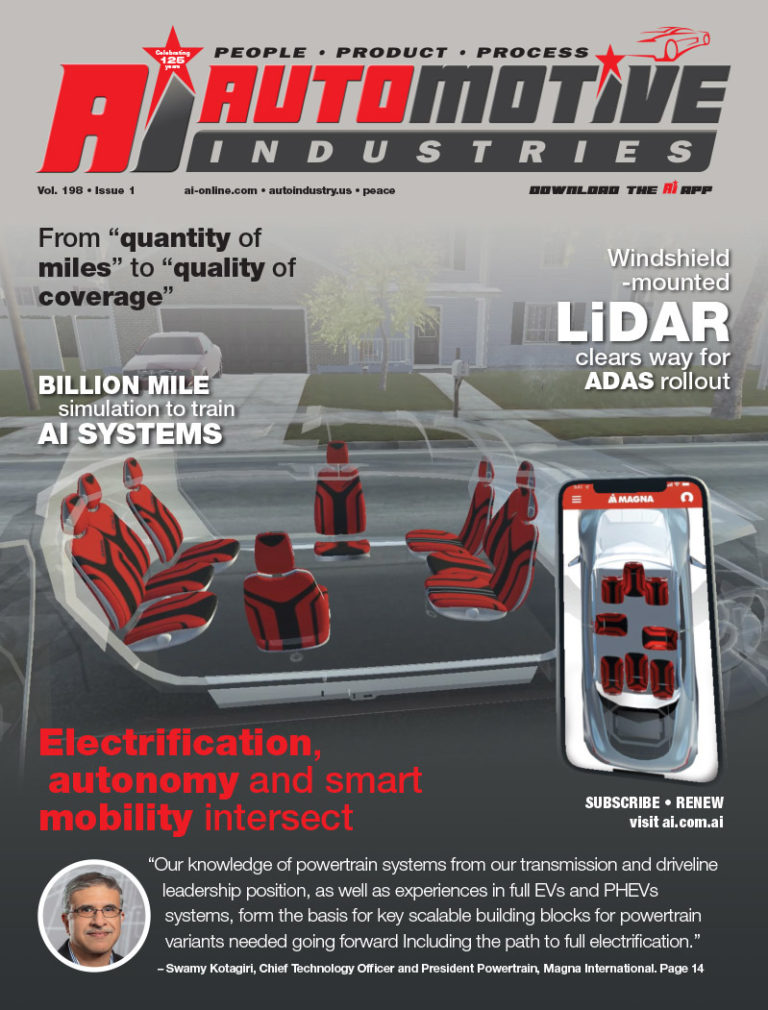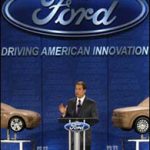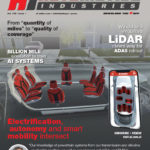As India and China continue to grow rapidly – both countries are expected to account for a fourth of world gross national product or GNP by 2025 – more and more automotive companies are setting up manufacturing bases in these countries.
All the big names in the global automotive sector, like GM, Toyota, Ford, and Delphi and so on, manufacture products in both India and China.
According to McKinsey report, the future of global outsourcing will be in industries like automobiles and auto components. According to the consultancy firm, automotive outsourcing was worth US$65bn in 2002 and will go up to US$375bn by 2015. India is expected to account for US$25bn with China grabbing an even larger share of the pie.
Half of all offshore manufacturing by US companies, involve sophisticated skills – this figure, according to McKinsey, will go up to 70% by 2015. For India, where 40% of manufacturing jobs are skill-intensive (again, according to McKinsey), it is relatively easy to meet demand. Nearly half a million engineers are churned out of colleges in India and another half a million in China.
Globally, two out of five employers are estimated to find it difficult filling in vacancies. In India, the figure is estimated to be around one in seven. Which clearly reflects the ease in hiring highly skilled workers in the country? China, in turn is a dominant globally force in mass manufacturing with multi-billion dollar manufacturing facilities. In the US, where the automotive industry has suffered major losses with spiraling labor costs, many companies are opting to shift to low-cost markets like China and India.
For automotive companies, the challenge lies in keeping up with latest technological innovations as well as cutting costs. Many believe India – with its large pool of English speaking people – and China, offer the ideal answer.
However, the challenge for companies wishing to set up manufacturing bases in these countries is in hiring the right people to fill vacancies.
That is where recruitment firms come in. Companies like Detroit-based Tier One Executive Search, which set up shop in 2002, have opened offices in China and soon, in India to source people for the automotive sector. The company specializes in operations, sales and engineering personnel in the automotive and related industries. According to Mark Thibodeau, managing partner at Tier One, he noticed a need for automotive professionals in Asia as early as 2000.
Tier One, which has a number of north American and European clients, set up a representative office in Shanghai and Hong Kong and plan to set up a wholly owned foreign enterprise or WOFE, in China. The company is now looking at India, which it believes is a different market. For example, in China, one in four employers finds it difficult to find production operators whereas in India, sales representatives are hard to come by.
The challenges of being a human resource recruiter in China are numerous – according to Thibodeau, while there is no dearth in the number of people available to fill up jobs, few have the requisite automotive experience. So while China has four times as many engineering graduates than the US, the fact that only one in 10 people own cars in China, means that many Chinese engineers have little practical experience on automobiles.
However, the demand for automotive jobs is so high that Tier One has seen people with experience in automotive companies or with Western companies, doubling and tripling salaries in the last two years. For Tier One, the market is two-fold – as Chinese manufacturing capabilities grow, the demand for other jobs in the automotive sector such as operations management, sales and new business development with Chinese original equipment manufacturers or OEMs, is growing.
At the same time, there is still a huge demand for traditional manufacturing jobs like management, quality, supply chain and so on. Tier One has helped a number of north American and European clients hire the best people in China, the company expects business to boom over the next decade in China. The company has a team of researchers in its Chinese offices that work on finding the right people for clients. Its Chinese office is headed by senior Tier One executive, Paul Cole, vice-president of Asia.
And with India emerging as Tier One’s next stop, its Asian business is likely to account for a bulk of revenues. Automotive Industries spoke to Mark Thibodeau, managing partner at Tier One, asking him how he thinks India will be different from China.
AI: How are India and China different from each other in terms of human resource availability?
Mark Thibodeau: I think it is too early for me to comment about India in a broad sense, but specifically in terms of human resource availability, the two are not all that different.
AI: With automotive companies looking increasingly at engineers with both mechanical as well as electrical engineering skills or mechatronics degrees if you will, – do engineers in China and India have the requisite skills?
Mark Thibodeau: As a generalization: no, but skills like this are developing fast. The market in China is maturing faster than any other in history. For the most part, the things that one would expect to happen in this market are happening, they’re just happening much faster than we thought. Most companies are looking for skills in areas which are specific to the automotive industry from a western standpoint, when it gets down to specific product knowledge and technology, this is being taught internally from existing company knowledge bases.
AI: So far, how have Tier One’s clients fared with local employees in China?
Mark Thibodeau: It depends greatly on the region within China. Although still challenging, the local employees aren’t the ones tripling their salaries. It’s the proven management, and senior management levels that are very challenging. We are talking about professionals with experience at western companies, automotive industry experience, and multiple language ability. These are the people writing their own ticket.
AI: You mentioned that salaries have doubled and in some cases tripled in the automotive sector in China over the last two years – will this trend put off companies wishing to manufacture in China?
Mark Thibodeau: I think it will be a consideration as a cost of doing business. I also think for the most part that the general labor costs will still be lower than that of western companies. I know there are other realities in China which are putting companies off.
AI: When do you plan to open shop in India? and why do think India is an important market?
Mark Thibodeau: We are moving forward as we speak, albeit cautiously. I would say within six months we should have grown our capabilities there to the point of being confident in the automotive industry. As far as it being an important market, our best way to measure that is by having existing clients who are expressing critical needs there, and we have.
AI: What do you think of the automotive manufacturing sector in India as compared to China?
Mark Thibodeau: I think we have to consider it from a western, foreign entity point of view. There are inherent problems in a foreign manufacturing entity dealing with the Chinese government(s). You may not have the same problems in India, but there are no doubt other problems there. I think from a human capital aspect, there might be less of a language issue in India.
AI: Who are some of your clients interested in hiring in India?
Mark Thibodeau: At this point they all seem to be larger, tier 1’s.
AI: Do you think as salaries rise in India and China, smaller Asian countries will prove more attractive for automotive manufacturing? If so, which countries do you think will emerge as manufacturing hubs?
Mark Thibodeau: I believe that salaries can only rise to a point and that they are only a small part of the equation. I can’t begin to name which countries might emerge, I can only say that whether large or small, it will be the countries whose governments are less restrictive on foreign companies. It will be the countries that truly embrace the idea of a foreign company profiting from setting up shop. It is one thing to be successful in a country in terms of sales and profits, and it is entirely a different thing to be able to easily take those profits out of the country.
More information can be found at http://www.tieronesearch.com














































 The Struggle for Clean Transportation
The Struggle for Clean Transportation Bill Ford Named 2006 Automotive Industry Executive of the Year
Bill Ford Named 2006 Automotive Industry Executive of the Year Nanjing signs 33-year lease agreement to secure Longbridge car production
Nanjing signs 33-year lease agreement to secure Longbridge car production


